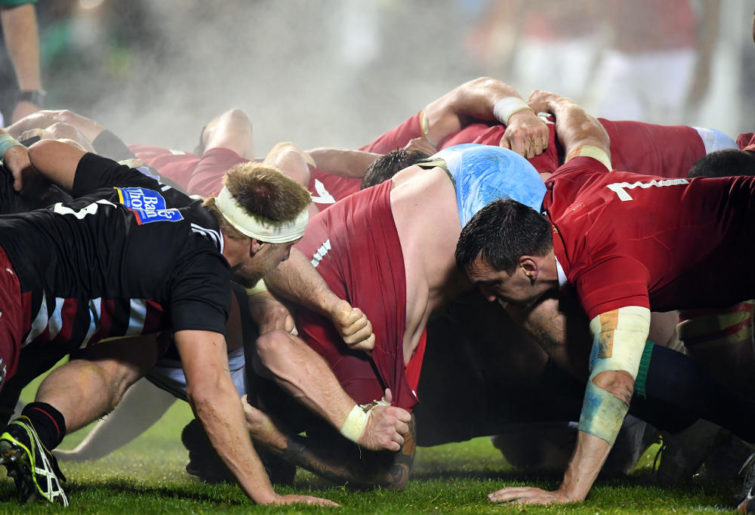We all know the legend that claims rugby was invented in 1895 when, during a soccer match at the Rugby School, a student named William Webb Ellis picked up the ball and ran with it.
But a careful study of history reveals that it wasn’t Webb who instigated what became the modern game, but the English king, Henry III, way back in 1246.
How did royalty get involved, and so early?
Around 1245, some English knights went on a perambulation from the North Sea to the Solway Firth (Google it) and demarcated the Anglo-Scottish border. But the Scots protested that the English had perpetrated a thieving landgrab, and a bitter quarrel arose.
It persisted so loudly that King Henry, wanting a little peace and quiet, called for a map and a quill, drew a line and said, “There. That’s the border.” And Alexander Stewart, High Steward of Scotland at the time, went along with it.
The territory on either side of this arbitrary divide was used by both the English and the Scots to pasture their herds. But the Scots, feeling more aggrieved than ever, began to raid the English herds and rustle cattle.
Naturally, the English replied in kind, and fierce battles ensured.
These raider bands, known as reivers, were really just a gruesome collection of mercenaries who served their respective sides as tough-nut enforcers. But even so, a code of fairness existed, and there were Days of Truce during which both sides presented invoices for stolen stock which, surprisingly, were honoured.
These truce days featured fairs, stage plays and fun for the kiddies. And they also featured a game between the Scots and the English, a game whose original name is lost to us. But a record exists of one played between the two nations on a truce day in 1599. And you thought that sport between enemies first took place on Christmas Day, 1914. So did I.
Few details of this match have come down to us, but we do know that each side was composed of just six players.
Historians are pretty certain that military tactics would have been employed, the Flying Wedge being the formation of choice. According to a Greek general, Arrian of Nickomedia, the wedge was a tactic going all the way back to Alexander the Great.
When adopted for sports, this ancient concept would have been largely the same as the one which existed in modern day league and union not that many years back. It was finally outlawed in both codes due to persistent injuries.

A ‘new school’ rugby scrum (AAP Image/Ross Setford)
The team’s biggest and toughest man would have been stationed at the apex of the wedge, then the next two biggest guys would have packed behind him forming the second row. Behind them were two more men positioned a little wider. And locking this wedge would have been the sixth man corresponding to our modern number eight.
The ball? The game would have been too rough for a pig’s bladder, so a stuffed oval made of cow hide tightly bound with coarse twine would have most likely been used.
After a coin toss – a Short Cross penny was produced of “good weight and fineness of silver” – the winner took possession of the ball, formed a wedge, and charged.
The defending side, grouped in a tight knot, did its utmost to clobber the apex man, break up this 13th century scrum, and compete for the ball carried by the sixman.
We have no idea which team won the contest, but we do know the result: two dead and thirty prisoners taken.
But wait a second. If the victorious team captured their opponents, that would make just six prisoners. So where did the other 24 prisoners come from? From the crowd.
The spectators. Fans of the losing side would have instantly invaded the pitch and laid about them. And fans of the winning side would have waded in, and the real battle would have been joined.
Eventually, too exhausted to continue, everybody would have limped off leaving behind a boggy field littered with teeth, ears, a few eyes and two corpses.
A surly prisoner exchange would have followed, then all would have joined the fair and said to their waiting wives whatever was Scots Gaelic and Middle English for, “Okay, we’re outta here.”
So next time somebody down at the pub opines that rugby, with its many fractures, concussions and ACL ruptures, has become too violent, you might reply, “You reckon? You should’ve seen it 600 years ago.”
Article written by crowd contributor ‘Jack’





























































































